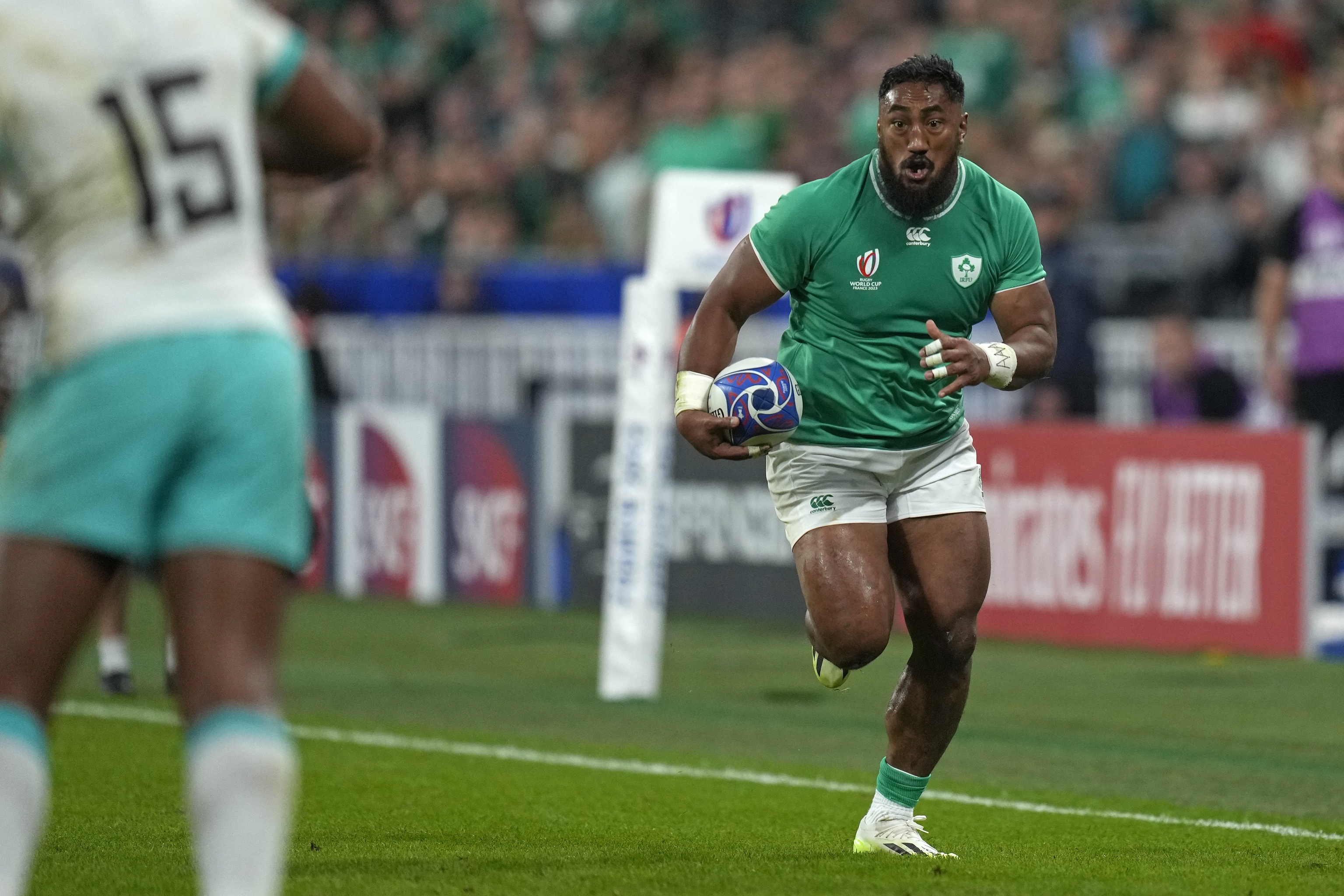"I didn't tell my mother... How could I tell her? I explained it to my older sister over the phone and asked her to help me with my mother. But she ignored me. Two minutes after hanging up, my mother was already calling me and yelling at me for an hour. I couldn't even speak, I had to hold the phone a meter away. It was a pretty tough moment."
Making your way through defenders weighing over 100 kilos can be difficult, but even more difficult is explaining to your mother that your girlfriend is pregnant when you are 17. Now, at 34, Bundee Aki, an emblem of Ireland, faces a new Six Nations like someone who has overcome fear. The worst is over. If there was a time when the future hid happiness, now he just has to enjoy playing rugby.
The sport he once abandoned; he had to. Of Samoan parents and raised in the suburbs of Auckland, New Zealand, Aki had always stood out with an oval ball in his hands and as a teenager had even earned a spot in the reserve team of an English club and a scholarship to study at Truro School, a very private school in Cornwall. "My family comes from a very poor background, we never had much at home, so I had to seize the opportunity. I was determined to be a professional," he recalled to the Irish Independent, praising the posh English life, even the meat pies in the cafeteria. But that opportunity was not his.
A few weeks after arriving, his New Zealand girlfriend, Kayla, called him to say she was pregnant, and after enduring his mother's scolding, he prepared to be a father: he left England, left rugby, and sought employment back in Auckland. At 18 and a father of a newborn girl, Armani-Jade, he worked as a cashier at a Westpac bank branch, and his professional sports dreams seemed long forgotten.
He was lucky to have his friend Tim Nanai-Williams, also Samoan, his neighbor, who got him out of the house and encouraged him to play on a rugby-7 team. Aki had gained weight to over 110 kilos and, according to Nanai-Williams, "only dedicated himself to opening beers." But he started training, getting in shape, outperforming all his rivals, scoring tries. And at 20, Tana Umaga called him, the former All Blacks captain, then coach of Counties Manakau, a club in Auckland, to see if he wanted to pursue his dreams again. What to do?
The controversy over his naturalization
"I was at a crossroads because they offered me a salary, but it wasn't guaranteed. Maybe it only lasted one season. It helped me a lot that my boss at the bank, Kalo, the branch manager, encouraged me to play and assured me that if it didn't work out, I could return to my position," recalls Aki, who has never updated passbooks again. He soon caught the attention of the Chiefs, one of the best teams in New Zealand, and at 24, he returned to Europe with the Irish Connacht team.
It wasn't the best team in the Pro 12, the league that includes clubs from Ireland, Scotland, Wales, and Italy, and they offered him a home in Oranmore, a town of just 5,000 inhabitants near Galway, but he didn't care. His second daughter, Adrianna, had just been born, and he wanted to settle down. He secured a starting position at Connacht, won the Pro 12 the following season, and even became Irish, despite the controversy in the country.
"Calling him up for the national team is morally wrong, it takes the place of players born and raised in Ireland," proclaimed former international Neil Francis, one of his detractors. "There are people who are not happy, but I work hard for the team," Aki responded. Since playing for Ireland, he has won three Six Nations titles, including the last two, and now seeks the fourth. The worst, clearly, is over.
